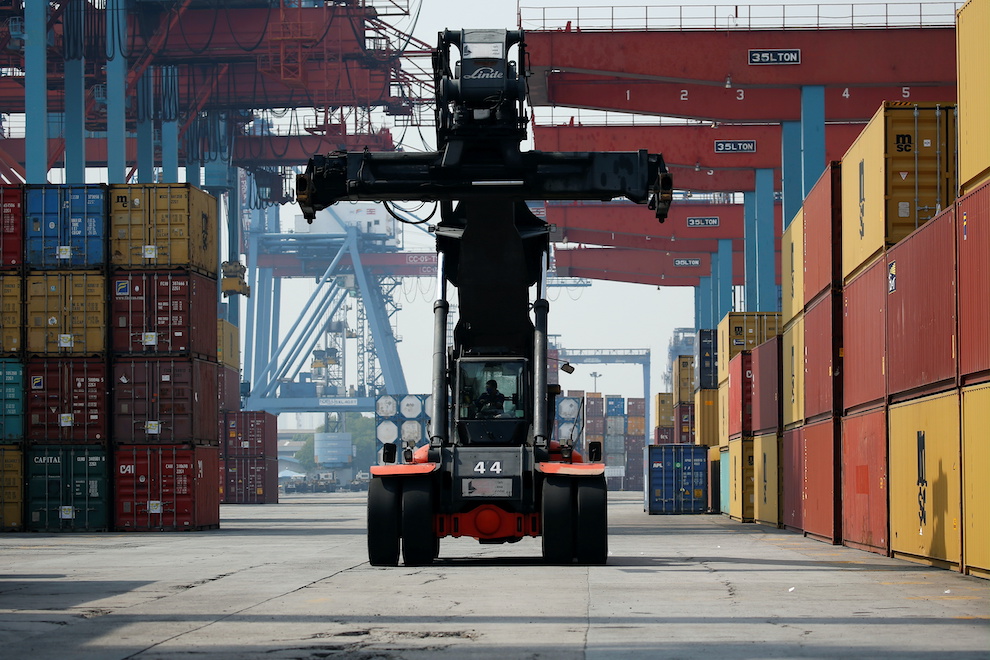Stocks fell on most Asian markets amid continued concerns about rate hikes and the economic slowdown in China caused by Covid lockdowns and the property sector’s prolonged debt crisis.
The Nikkei was down more than 1% in Tokyo, while the Shanghai Composite Index slipped by 0.5% and the Sensex was down 2% in Mumbai. Markets were closed in Hong Kong and Sydney for the Easter holidays.
News today that the Chinese economy expanded by 4.8% during the first quarter from a year earlier was tempered by a realization that growth and consumer spending has been hammered by lockdowns in Shanghai and other cities in recent weeks.
The People’s Bank of China announced a 25bps reduction to the reserve requirement ratio that banks must hold last Friday, but some investors were disappointed that the cut was not bigger.
Analysts said greater easing will be needed to underpin the economy and that a deeper slowdown is likely over coming months. Real estate developers tumbled 4.3%, while financial and energy stocks were both down 3%.
“This cut will do little for lifting growth momentum as Shanghai’s lockdown, geopolitical tensions and property sector concerns go largely unaddressed,” said a note from Mizuho Bank said.
“The April data are set to be even worse,” said Julian Evans-Pritchard, senior China economist with Capital Economics. “High-frequency indicators suggest that disruptions from the virus wave have intensified since the start of this month. Unless the situation improves very soon, it’s hard to see how growth won’t slow further this quarter.
“But last week’s smaller-than-expected RRR cut and lack of policy rate cuts suggest that officials are taking a restrained approach to stimulus. The upshot is that China’s economic performance is likely to remain lacklustre in the near-term,” he said.
Singapore and KL Down, Jakarta Buoyant
Banking stocks led Singapore benchmark index to a 0.7% drop, its lowest level since March 17, while Malaysia fell for a third straight session, dipping 0.3%.
“There is some hesitation in the equity market ahead of results from Singapore’s banks. Interest rates may have run ahead of expectations and a counter-trend rally may be underway in favour of interest rate-sensitive sectors such as REITs,” Paul Chew Kuan Leng, head of Phillip Securities Research said.
Jakarta stocks were an outlier in the region, climbing 0.4%, lifted by higher energy prices and ahead of a central bank policy meeting where an interest rate hike is expected as inflation risks persist.
Separately, the resource-rich country’s exports and imports hit record highs in March amid rising commodity prices due to the impact of the Ukraine war, statistics bureau data showed.
South Korean shares closed slightly lower, as investors maintained a cautious stance despite stronger-than-expected quarterly economic data in China. The won weakened, while the benchmark bond yield hit a new eight-year high. The benchmark KOSPI index ended 0.11% lower.
Oil Slips
Oil edged lower on Monday pressured by worries over slowing demand in China, although concern over tight global supply and the deepening Ukraine crisis kept Brent crude above $111 a barrel.
Brent crude, the global benchmark, fell 26 cents, or 0.2%, to $111.44 at 1055 GMT, sliding from the highest since March 30 of $113.80 hit earlier in the session. US West Texas Intermediate was down 11 cents, or 0.1%, at $106.84.
• Jim Pollard with reporting by Reuters.
ALSO on AF:
China Bank Has $11bn Wiped Off Value on Probe Report – SCMP
China March Slowdown Takes Shine Off First Quarter Expansion
China to Help Key Industries Restart in Covid-Hit Shanghai
























